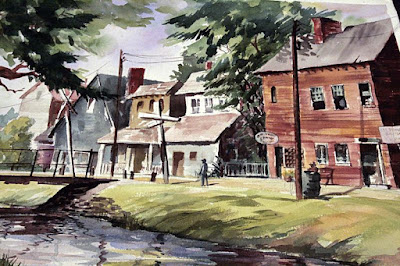Questions for Jennifer Fink
1. The book is extremely ethnic. Do you think this limits your outreach to a specific audience or is it a heartwarming contribution to cross-cultural literature?
2. Are gerbils metaphoric? Are they allusions to previous literature?
3. What did you have in mind by putting Tanya in a crib at camp?
4. How do you see the role of autobiography in literature and in your work in particular?
5. What are you trying to achieve in terms of style?
6. Once a psychiatrist told the student who is asking this question: "the closer you align your concept of yourself with your actual age at the time the saner you are". Is your work in any way a challenge or reaction to this?
7. How did you conceive of the structure for "Fabrications"? Does it mirror the "fugues" throughout the book? Are the sections supposed to trigger intimate memories that give us a perception of the public psyche?
2. Are gerbils metaphoric? Are they allusions to previous literature?
3. What did you have in mind by putting Tanya in a crib at camp?
4. How do you see the role of autobiography in literature and in your work in particular?
5. What are you trying to achieve in terms of style?
6. Once a psychiatrist told the student who is asking this question: "the closer you align your concept of yourself with your actual age at the time the saner you are". Is your work in any way a challenge or reaction to this?
7. How did you conceive of the structure for "Fabrications"? Does it mirror the "fugues" throughout the book? Are the sections supposed to trigger intimate memories that give us a perception of the public psyche?


A direct parallel can be drawn between the gerbils in ‘Camp’ and those mentioned in Donald Barthelme’s ‘The School.’ In Fink’s story, the narrator experiences this loss during the formative years of her youth, though the expected trauma of losing 27 gerbils and a bunny within a single night is largely lost to her at the time. “Can fetuses drown? How can something never born experience death? I don’t ask these questions,” she states (38). In ‘The School,’ the children are similarly unfazed by the death of their own class gerbil, and the deaths of many people in their town; this is largely rooted in an incapacity to wholly grasp and accept the permanence of death, though their inquiries for the teacher later suggest that their understanding of loss is not totally absent, just undeveloped. The gerbil’s death (in addition to those of the other residents in town) leads the kids to directly confront the question of what exactly death means; this is a question which even their teacher cannot answer fully. At the conclusion of both works, the cycle seemingly begins again. In Barthelme’s story, he ends with the statement, “...I opened the door and the new gerbil walked in. The children cheered wildly,” (95). In Fink’s work, one of the final sentences is “Next year we’ll try guard dogs, Grandma yells above the vacuum,” (39). The gerbils, a symbol for the sad and often unfair reality of an innocent’s death, are mourned but briefly. The characters within both novels quickly recover from the deaths they witness, and they simply move on with the knowledge that this will inevitably occur again. Though the more pressing questions about death remain unanswered, the gerbils’ deaths expose the children to a harder truth than they’ve known and marks a departure from their sheltered comfort.
ResponderExcluirAre the gerbils in any way supposed to be representative of the jews in the sense that they are both forced to live through extreme conditions, hunted by other predators, and are eventually rounded up to be exterminated?
ResponderExcluirFor the crib scene, I found the contrast between a “cage” feeling both safe and constraining to be interesting. The line, “It is a small crib, made smaller each year by the books I pile in with me every night” gives me the impression that the crib is something that was once more comfortable as an infant but is increasingly becoming less viable as she grows older (Fink 32). Yet in one way, the crib is her home, at least in that “There is no other bed” for her (Fink 32). She deals with it and makes with it she can, as she is, even at ten, “too grown-up to complain” (Fink 32). The Nazi reference, however, drives a stake in any conception of security. The casual mention by her grandparents caught me off-guard as well, although I thought it was effective for the very aforementioned reason: We may try to hold onto our cribs from when we were younger and times were simpler, yet no matter how much we try, we will never be able to go back. Even further, our security in the cribs as infants was likely more of an illusion if anything, for even infants are not immune to danger, no matter how much we try, such as in the case of World War II. The line “The Nazis came for you, says Grandma as she vacuums, shrieking a bit because her hearing aid is turned way up, so you may as well admit it” is so casual that it’s almost haunting (Fink 33). It speaks, however, to just how quickly and effortlessly our security can be destroyed. While we may feel safe in our life, our existence can be turned upside down without any notice or regard for our hopes and dreams, just as casually and caustically as her grandmother warned about the Nazis coming for them.
ResponderExcluirMike Neary
In “Fabrications”, you discuss the erasing of the present in Stalinist Russia and the response of the people to look to the past and future for answers. Why do the main characters in "Fabrications" react to post 9/11 America by only looking to the past instead of also looking to the future?
ResponderExcluir-Shrenik
1. In "Camp," what was the purpose of highlighting the interaction between the "middle class Afro-Americans imported from the City" and the "pale commiekids"? This is the only time in the story Tanya interacts with someone outside of her family, what is the significant of this?
ResponderExcluir2. In "Camp," there is an interesting parallelism between summer camp and concentration camps, especially with the allusion to barbed wire and specific activities to be performed in certain "huts." What was the inspiration for this connection?
3. In "Camp," Jewishness is equated with loss of innocence. Tanya sleeps in a crib, putting herself into a fetal position, in what seems like an attempt to regain her innocence. However, at only 10, she dreams of a "mustachioed S.S. officer" kissing her mouth and thighs, and she's referred to by the African American kids as a "honky candy-ass jew kike slut" and a "jew faggot cocksucker pussy-faced whore." What is the significance of equating Jewishness and loss of innocence?